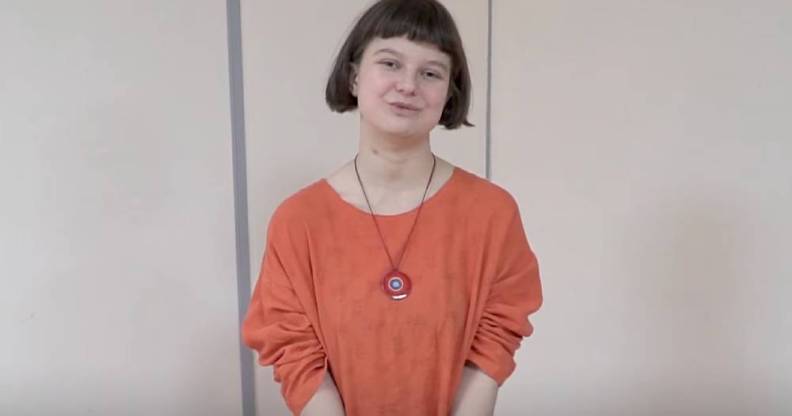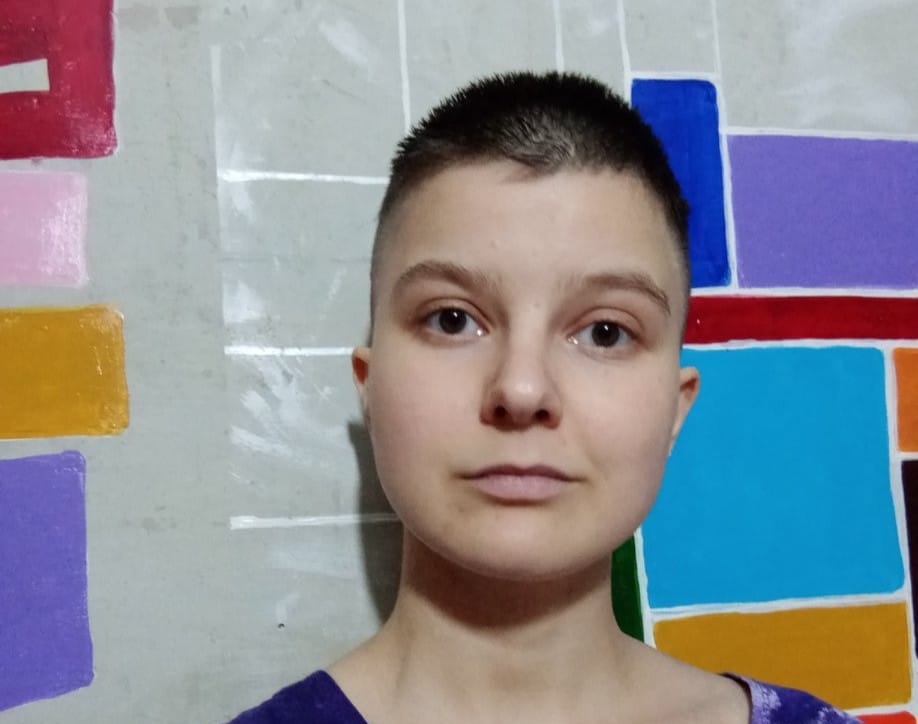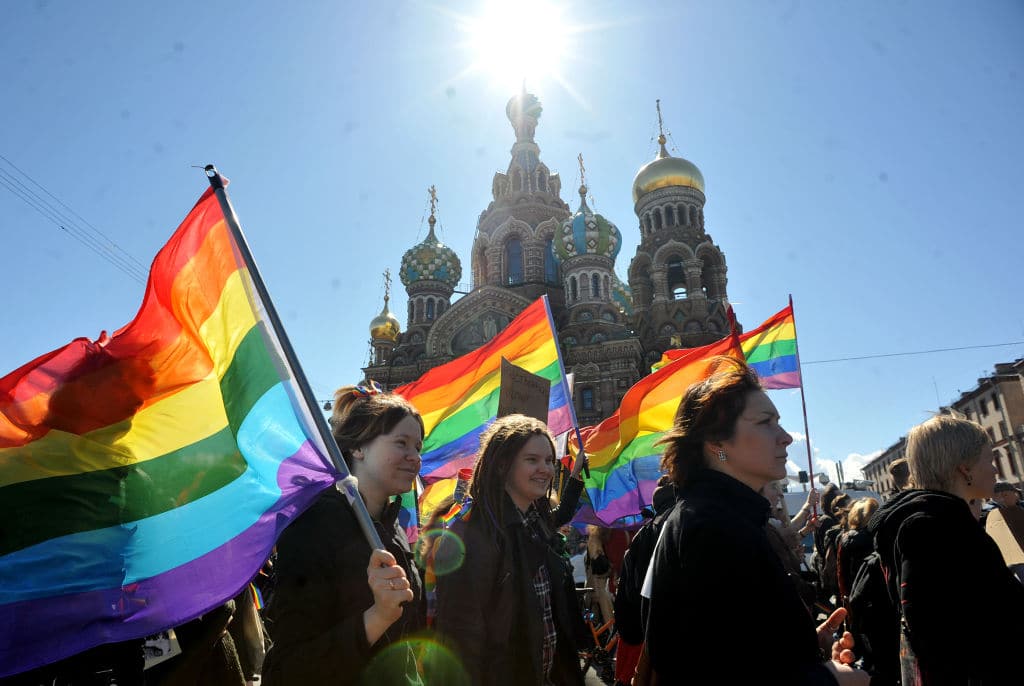Prosecutors relaunch legal battle against Russian activist acquitted of pornography charges

Prosecutors have appealed a Russian court’s decision to acquit Yulia Tsvetkova, a LGBTQ+ activist and artist. (YouTube/Radio Free Europe/Radio Liberty)
Russian prosecutors revived a legal battle against Yulia Tsvetkova, an artist and LGBTQ+ activist, just a week after she was acquitted of pornography charges.
Tsvetkova was acquitted on 15 July by the Central District Court of Komsomolsk-on-Amur of distributing pornography and so-called LGBTQ+ “propaganda” after posting drawings of vaginas on social media to combat societal body image norms in 2019.
She was arrested and charged with distributing pornography in 2019, spending four months under house arrest. Tsvetkova was handed another set of charges in July 2020 and a hefty fine over her art which authorities claimed violated Russia’s “gay propaganda” law.
Her case, which has dragged on for years, prompted international attention and outcry within Russia.
In a rare move, the Russian court decided to drop the charges against Tsvetkova. Most cases that go to court in Russia end in conviction with less than 1 per cent of defendants in criminal cases being acquitted, according to the Associated Press.
A group of Yulia Tsvetkova supporters reported on Telegram that the prosecution decided to appeal against the verdict on 22 July.

Russian LGBT+ activist and artist Yulia Tsvetkova. (Юлия Цветкова/ Facebook)
Tsvetkova’s mother, Anna Khodyreva, confirmed the prosecution decided to relaunch the hateful campaign against her daughter in a post on Facebook. She described how now is “possibly the most dangerous time of all three years of the trial and investigation”.
“Protection resources are at the end, the strength of Yulia and her loved ones is no longer enough, support and publicity is less and less,” Khodyreva wrote. “And the state resources are unlimited and the prosecutor’s office really wants to protect the ‘honour of the uniform’.”
She added the appeal is a “decisively important” move that could see the case “go to a new circle of court” or bring a guilty verdict “immediately” despite “the fact that the composition of the conviction, as proven, could not be”.
“How many more years and strength of life can this senseless accusation steal from Yulia is scary to even imagine…” Khodyreva said. “Now we really need maximum mobilisation and publicity. And all the resources available.”
The acquittal of Yulia Tsvetkova was set to take force after 10 days unless authorities appealed the ruling. Last month, prosecutors said they were seeking a sentence of three years and two months in prison on the charges, the Moscow Times reported.
Marie Struthers, Amnesty International’s regional director for eastern Europe and central Asia, said Tsvetkova’s “rare triumph of justice over repression” and “freedom from harassment” were “painfully short-lived”. Struthers described the prosecution’s move as proof of Russian authorities’ “fervent commitment to oppression and cruelty”.
“Since her arrest in 2019, Yulia has endured house arrest, travel restrictions, and the constant threat of years in prison,” Struthers said. “She has also faced relentless reprisals for her defence of LGBTI rights, including being heavily fined under Russia’s deeply homophobic ‘gay propaganda’ legislation.”

Gay rights activists march in Russia’s second city of St. Petersburg May 1, 2013. (OLGA MALTSEVA/AFP via Getty)
Struthers said Amnesty International urged Russian authorities to “end the inane mockery of justice” which has put Yulia Tsvetkova’s “life on hold for nearly three years”.
In June, Tsvetkova was declared a “foreign agent” by the Kremlin – joining a growing list of activists, media organisations, journalists, LGBTQ+ advocates and non-governmental organisations.
Russia’s vile ‘gay propaganda’ law, passed in 2013, criminalises the sharing of LGBTQ+ content with minors. Lawmakers have attempted in recent months to expand the notorious legislation to ban queer content for adults as well.
Dilya Gafurova, head of Russian LGBTQ+ charitable foundation Sphere, told PinkNews the government is using the law “arbitrarily” to mostly “curb activism”.
She added the legislative attacks have had a devastating impact on queer people in Russia who are forced to “live in fear” because “they’re forever being denied their identity and their rights”.
“It’s heartbreaking to see people are portrayed to be a product of any kind of influence,” Gafurova said. “This is about their identity, who they are and this has been denied to them.”

